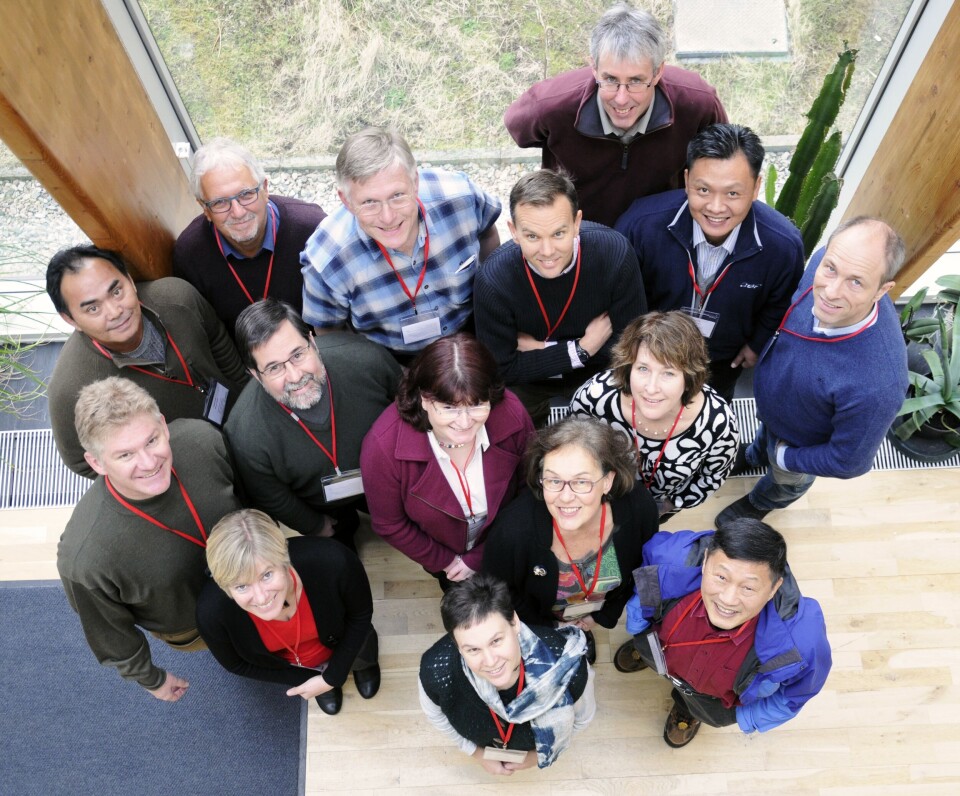
To HAB and to HAB not
A group of eminent microbial experts assembled at the Scottish Association for Marine Science (SAMS) this week to address the problem of harmful algal blooms (HABs), which can both cause biotoxins in seafood and lead to the death in fish.
The Oban gathering was well timed, given the recent events in Chile, where 20-25 million salmon are thought to have been killed by algal blooms and the fact that a number of Scottish salmon producers were forced to harvest their sites early in the second half of last year due to algal-related concerns.
Although the meeting was identifying future priority areas rather than one discussing specific issues or events, Microbial Ecologist Professor Keith Davidson, who represents SAMS on GlobalHAB, told Fish Farming Expert that the recent impacts of blooms on the Scottish salmon industry… “is quite interesting as there are relatively few documented diatom based fish kills [in Scotland]. We have some hypotheses on the causes, and hope to get some research funding to test determine which, if any, are correct.”
Reflecting on the situation in Chile, he continued: “I believe the causative genus is Pseudochatonella. This is a known fish-killing organism. There is an El Nino event just now, but I would not be able to speculate on whether they are linked without much more detailed information on the event.”
He added that key priorities, such as possible ways of predicting, monitoring and dispersing HABS, “are huge topics. All fall within different priority areas for GlobalHAB. There is much existing literature on all, but methods and issues differ with harmful species and region.”
HABs are caused by certain microscopic algae, which are known to naturally produce biotoxins, grow quickly and reach high concentrations. They can deplete the oxygen in the water and some HAB-causing algae release toxins that are dangerous to animals and humans.
Now an international steering committee, under the banner of GlobalHAB, is looking to help fellow researchers understand how HABs affect human health and their impacts on industries, such as aquaculture, in a changing climate. The project is sponsored by the Scientific Committee on Oceanic Research (SCOR) and the Intergovernmental Oceanographic Commission (IOC) of UNESCO.
Professor Davidson said: “The steering committee comprises experts from a range of countries in Europe, Asia, Australia and North America. Their combined scientific expertise is relevant to many types of HABs and their impacts. There is a lot of independent HAB work going on throughout the world but this group will help the international scientific community and the society to have more collaborations and partnerships."
Worldwide there are approximately 4,000 species of marine phytoplankton, approximately 300 of which have properties that make them harmful to humans. Toxins found in some shellfish can cause muscular paralysis, diarrhoea, sickness and even amnesia in humans.
GlobalHAB will follow on from work done by the GEOHAB project, which ran from 2000 – 2013. GlobalHAB chairwoman Elisa Berdalet was also involved in GEOHAB and said the collaborative nature of the groups had been invaluable in advancing the science of HABs.
“We have a legacy from GEOHAB that we needed to continue,” she added. “It was a very productive programme that advanced our understanding of why HABs occur.
“But in the 16 years since GEOHAB was formed, the planet has changed – the term ‘climate change’, mentioned briefly in GEOHAB, has become a main topic in GlobalHAB. The new programme will investigate the relevance of the global change on the occurrence and incidence of HABs in the near future.
“There is a general need for HAB research across the world because it is a common problem – there are different issues locally – but we need a global vision.”
GlobalHAB will now outline the scientific priorities that researchers worldwide can use to help direct and co-ordinate their research. The project also aims to promote communication between scientists and society.
Dr Berdalet, vice director of the Institute of Marine Sciences, Barcelona, said SAMS was an integral part of GlobalHAB, adding: “SAMS has a solid and internationally recognised academic background in phytoplankton ecology and HAB research, which is fundamental. SAMS is already implementing continuous, near real-time monitoring of HABs and uses classic and highly specialised microscope analyses, alongside new technology, like molecular tools and gliders to advance the research.
“SAMS also has a long term series of data that is crucial to understanding trends of climate change in HABs and other environmental changes that can affect human health and wellbeing. If you can’t see the past, you can’t clearly see the future.”
GlobalHABs scientists met at SAMS, Oban to discuss research priorities into harmful algal blooms























































